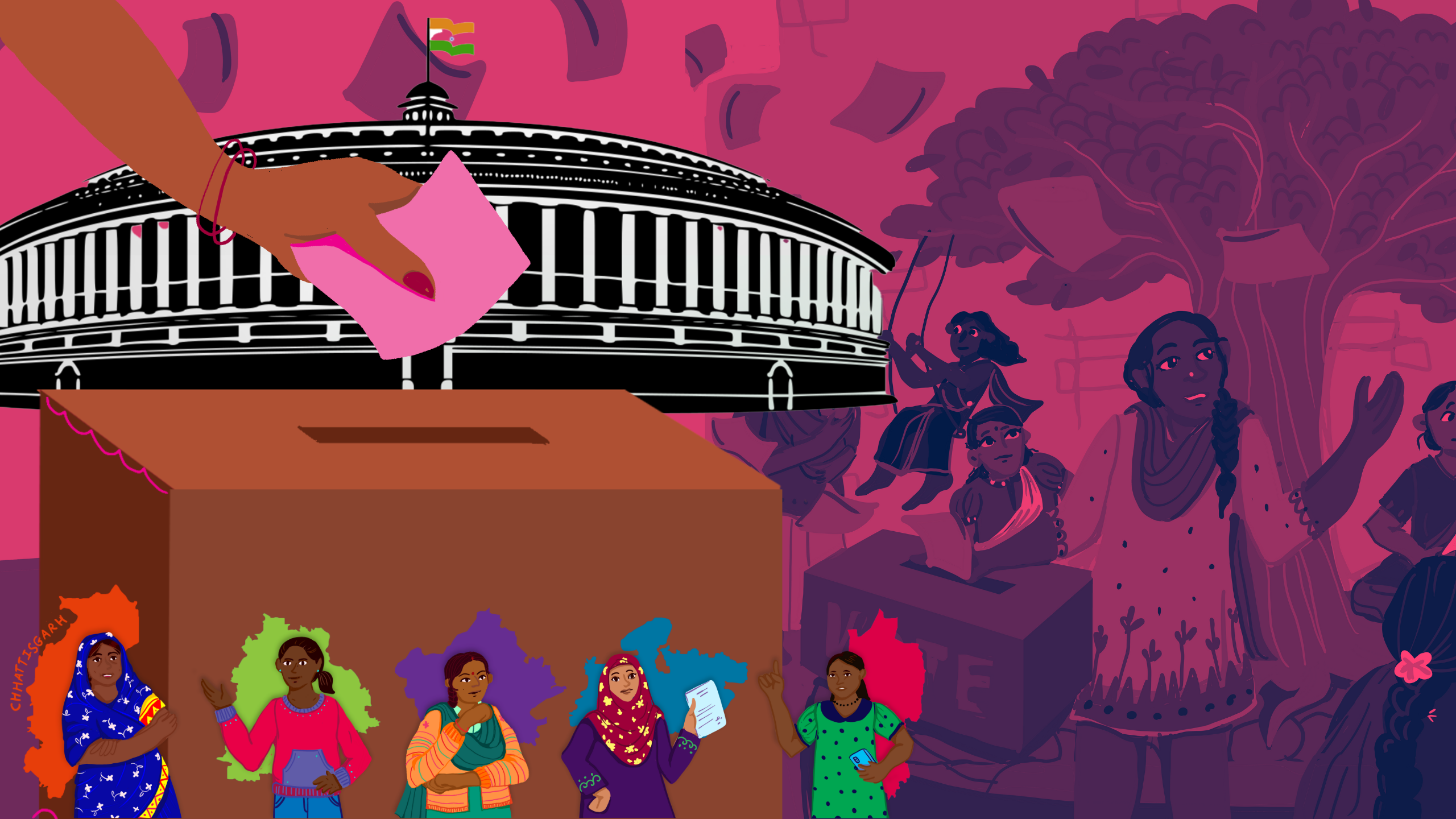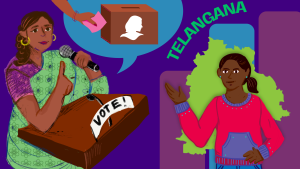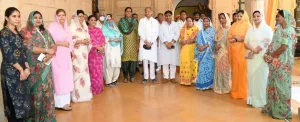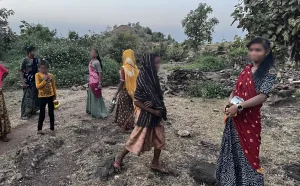After Recent Elections, Women’s Share Increases In 4 State Assemblies
Two in five women fielded by major parties won in Chhattisgarh, Madhya Pradesh, Mizoram, Rajasthan and Telangana elections

There has been a sharp increase in the share of women MLAs in four of the five states where state elections were held recently. Chhattisgarh, Telangana, Mizoram and Madhya Pradesh (MP) elected more women than in their last assembly polls and the highest ever in their electoral history. Only Rajasthan saw a marginal decline in these numbers.
In these five states, a total of 79 women candidates won across the 678 seats polled for, making for 11.6% of the winners.
Most women who won were fielded by the major parties, both national and regional – of the 180 of them, 42.7% won while 41.7% came second. Only two independent candidates were elected, both from Rajasthan.
Chhattisgarh
Chhattisgarh elected 19 women to its new legislative assembly, increasing the share of women MLAs in the state to 21% from 14% in 2018. These wins mean that Chhattisgarh retains its position as the state with the highest proportion of women MLAs in India.
While the Bharatiya Janata Party (BJP) won with a clear majority in the state, its share of women MLAs is lower than that of the rival the Indian National Congress (INC). Of the 19 elected female MLAs, 11 (57.9%) were from INC and eight were from BJP. Over 61% of INC’s women candidates won their seats compared to 53% of BJP’s.
BJP’s Laxmi Rajwade beat two-time MLA from INC, Paras Nath Rajwade, with a margin of 44,000 votes. She had the highest winning margin of all women candidates in the state. Former women and child development minister, Anila Bhendia, won with a margin of 35,000 votes from Dondi Lohara, making it her third consecutive win from the constituency.
Incumbent INC MLA Ambica Singhdeo lost her Baikunthpur seat to BJP’s Bhaiya Lal Rajwade by a margin of 25,000 votes. Singhdeo, a member of the royal family of Koriya, had defeated Rajwade in 2018.
Madhya Pradesh
The state elected 27 women candidates to its 230 member state assembly – 11.7% of all MLAs, up from the 9.1% in 2018. Of the 57 women candidates fielded by the INC and BJP, 43% won the elections – 21 of them belong to the BJP and six to the INC.
Krishna Gaur, the sitting BJP MLA from Govindpura, doubled her winning margin over the last election, winning by over 100,000 votes. This is the highest margin among all the 79 women who won. Gaur’s father-in-law, Babulal Gaur, is the former chief minister and was elected from Govindpura eight times.
Mizoram
In a historic election for women, Mizoram elected three women to its assembly, the highest-ever share of women MLAs since the state’s formation in 1987. The state had elected two women MLAs each in 1987 and 2014, the only female MLAs in the state’s history.
In the 2023 elections, two of the three candidates who won were from the Zoram People’s Movement (ZPM), an alliance of six regional parties that came together to form a single entity in 2017. The party broke the 36-year-old domination of INC and Mizo National Front (MNF) in the state by winning 27 of the 40 seats.
Vanlalawmpuii Chawngthu, the only former MLA in the list of female candidates, lost from Aizawl South-1 by 6,000 votes. She came third and lost to ZPM’s C Lalsawivunga.
In Aizawl South-3, 32-year-old Baryl Vanneihsangi of ZPM won with a 47.7% vote share. Vanneihsangi, who is also the corporator in the Aizawl Municipal Corporation, defeated F Lalnunmawia, the incumbent MLA of MNF, by 1400 votes.
ZPM’s Lalrinpuii beat two-time MLA Joseph Lalhimpuia in Lunglei East constituency with a margin of 1600 votes. MNF’s Prova Chakma won from West Tuipui constituency with 711 votes, breaking INC legislator Nihar Kanti Chakma’s five-term streak.
Rajasthan
Rajasthan, the only state where women performed worse than before, saw a marginal decrease of women MLAs from 21 (10.5%) in 2018 to 20 (10%) in 2023.
Of the five states, Rajasthan is the only one state where independent women candidates have been elected– Priyanka Chowdhary from Barmer and Ritu Banawat from Bayana. Both had contested earlier on BJP tickets, Banawat twice so, and lost.
BJP’s Diya Kumari won in Vidhyadhar Nagar constituency with a margin of 71,000 votes. Kumari is a member of the Jaipur royal family and the granddaughter of Man Singh II, the last maharaja of the princely state of Jaipur. This is her third victory from the constituency since joining BJP in 2013. She had positioned herself as “daughter of Jaipur” and was hailed as the “princess who walks on the streets” in this electoral campaign. In the 2019 Lok Sabha polls, she was elected as an MP from Rajsamand with one of the biggest victory margins of 5.51 lakh votes.
Former Chief Minister and BJP leader Vasundhara Raje won from Jhalrapatan constituency with 53,000 votes. Raje, who was reported to be sidelined since the party lost in 2018, has been winning from this constituency since 2003.
Telangana
In Telangana, 10 women candidates won the election, up from 6 in 2018. Share of women MLAs in the state increased from 5% to 8.4%. Half of INC’s 12 and BRS’ 8 candidates won, while all of BJP’s 13 women candidates lost.
Dansari Anusuya, also known as Seethakka, won from Mulugu seat with 30,000 votes.The Scheduled Tribe-reserved constituency, situated in the eastern Mulugu district, is the largest Assembly segment in the state in terms of area and is dominated by tribals. Seethakka, who was formerly a part of Janashakti Naxal group, started her political journey in 2004 after becoming a lawyer. She hails from the Adivasi Koya tribal community.
Two young women from the state–Dasari Usha and Karne Shireesha–who had gained prominence in the run up to the election lost by a wide margin. Bahujan Samaj Party’s Dasari came third in her Peddapalle constituency, losing to INC’s Chinthakunta Vijaya Ramana Rao. Dasari, who is from the Backward Classes (BC), had said that caste was instrumental in her taking the political plunge and had demanded a caste census in the state.
In Kollapur constituency, 25-year-old Dalit woman Karne Shireesha, who is commonly known as Barrelakka lost by 88,000 votes. She came fourth with a total of 5,754 votes, defeated by five-term MLA Jupally Krishna Rao. Barrelakka, meaning sister who owns buffaloes, went viral in 2021 after posting an Instagram video about her decision to buy four buffaloes using her mother’s hard-earned money, because she was unable to avail a job in Telangana despite being a degree holder. She contested as an independent candidate and put a spotlight on the unemployment issue faced by the young people in the state.
We believe everyone deserves equal access to accurate news. Support from our readers enables us to keep our journalism open and free for everyone, all over the world.




